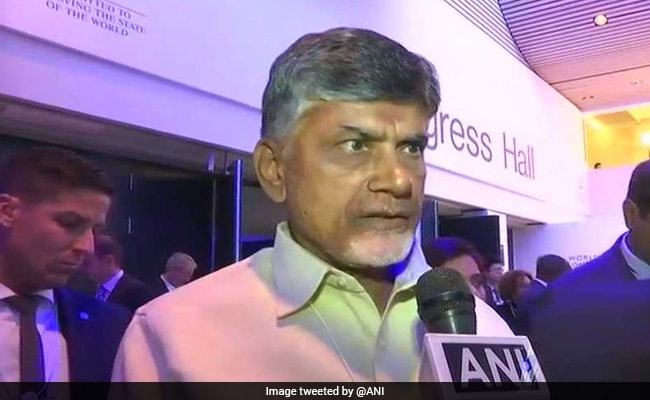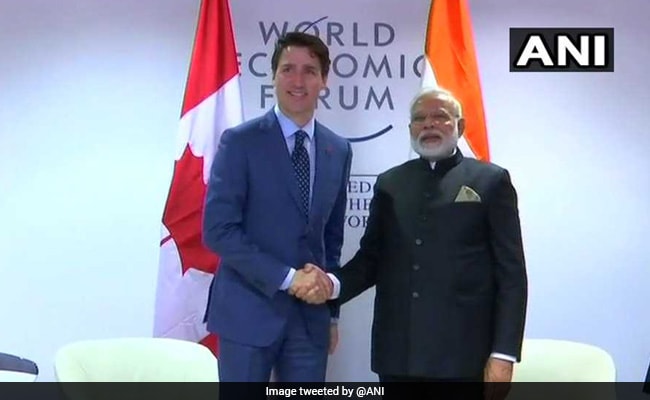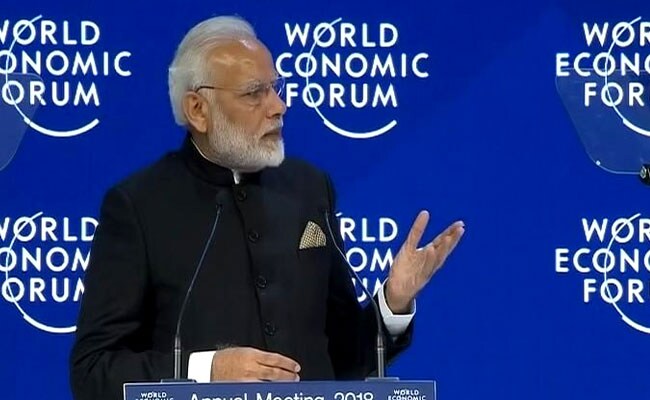Here are the LIVE updates from day 2 of PM Narendra Modi's visit to Davos, Switzerland for the annual World Economic Forum meeting:
PM Narendra Modi meets Queen Maxima of Netherlands
PM Narendra Modi meets Indian CEOs at World Economic Forum
PM Narendra Modi with Indian CEOs at #WorldEconomicForum in #Davos pic.twitter.com/1Lwi9mhE6L
- ANI (@ANI) January 23, 2018
A "historical" day for India: Chandrababu Naidu

"PM has a vision of creating a new India by 2022"
Saying that the substance of Prime Minister Narendra Modi's speech at the World Economic Forum is 'New World with New India', Union Minister Suresh Prabhu added that PM Modi has a vision of creating a new India by 2022. "He is saying that why not create a new World at the same time when we create a new India," Mr Prabhu said.

Opening Plenary with Narendra Modi, Prime Minister of India https://t.co/vtdsuHPeyr
- World Economic Forum (@wef) January 23, 2018
India will always be a unifying and harmonising force. Rabindranath Tagore had written of a heaven of freedom where the world is not divided by narrow walls. Lets make that a reality.
I invite you all to come to India - If you want wellness with wealth, come to India; If you want wholeness with health, come to India; If you want peace with prosperity, come to India. Remember, that you will always be welcome in India.
Mahatma Gandhi had said I dont want the walls and windows of my world be closed from all sides. I want the air of the world to come in freely but it shouldn't uproot my home. India follows this philosophy. We Indians understand the value of diversity. We understand the importance of freedom and democracy.
In 2014, India's 600 crore voters, for the first time gave a complete majority to one party, and we have always strived for 'Sabka Saath, Sabka Vikas'. And this forms the bedrock of all policies of my government. Be it opening bank accounts for all Indians to ensure financial inclusion, or digital inclusion, or gender justice. Progress is only real when it helps everyone and everyone joins us in the journey.
Our path to progress is reform, perform and transform. This is why investing in India, travelling to India, manufacturing in India has become much easier than before. We have pledged to end license raj, we are removing red tape and laying out the red carpet. New doors for Foreign Direct Investment (FDI) are being opened. 1400 laws that were hurdles to progress have been scrapped. GST has been implemented, technology is being used to increase transparency. Democracy, demography and dynamism are shaping our destiny today.
In 3.5 years, India has seen massive changes that accept the aspirations of 1.25 billion Indians. Innovation and entrepreneurship is making young Indians job givers, not job seekers. For a shared prosperity, we have to work together, shedding our differences.
The first one: Climate change
Glaciers are receding, the Arctic ice is melting, islands are going under water or are about to. Heat and cold, excessive rain and drought - effects of extreme weather are seen everywhere. Even here, we are seeing the highest snowfall in 20 years.
We should have shed our divisions and united to tackle the challenge, but we must ask honestly if we have done so. Everyone says climate emissions must be reduced, But how many developed countries reach out to developing nations with the technology required to do so?
Thousands of years ago, our sacred texts, read that we humans are the children of mother Earth. But then why do we see a war between humans and environment?
Father of the nation Mahatma Gandhi always endorsed utilisation based on need, and opposed greed. But we have wandered far from that thought and exploited nature. We must ask ourselves, is this development or is this deterioration?


